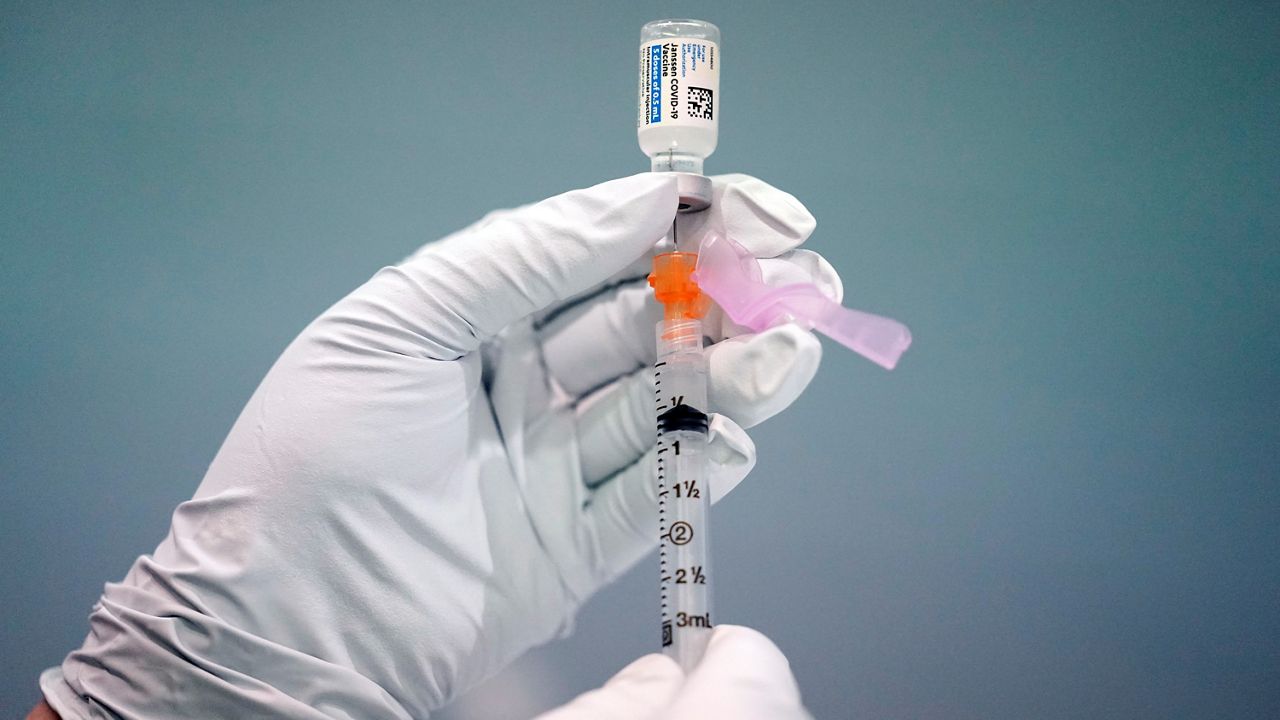Drugmakers Moderna and Johnson & Johnson are facing questions about data they submitted to the Food and Drug Administration as they seek approval for their COVID-19 booster shots.
What You Need To Know
- Moderna and Johnson & Johnson are facing questions about data they submitted to the Food and Drug Administration as they seek approval for their COVID-19 booster shots
- A committee of independent advisers to the FDA will meet Thursday and Friday to consider whether the additional vaccine doses should receive emergency use authorization for people ages 18 and older
- In an online review Wednesday, FDA scientists didn't reach a firm conclusion about J&J's booster request, citing shortcomings with the company's data, including little information on protection against the extra-contagious delta variant of the coronavirus
- On Tuesday, the FDA released a mixed analysis on Moderna’s data and said the data do not clearly demonstrate a booster shot is needed, the scientists said.
A committee of independent advisers to the FDA will meet Thursday and Friday to consider whether the additional vaccine doses should receive emergency use authorization for people ages 18 and older.
On Wednesday, the FDA said it is wrestling with whether and when recipients of the single-shot Johnson & Johnson vaccine need another dose – at six months or as early as two months.
In an online review, FDA scientists didn't reach a firm conclusion, citing shortcomings with J&J's data, including little information on protection against the extra-contagious delta variant of the coronavirus.
FDA reviewers wrote that a study of the two-month booster plan suggests “there may be a benefit," while pointing to only small numbers of people who got another shot at six months instead.
On Tuesday, the FDA released a mixed analysis of Moderna’s data. Agency scientists found that a 50-microgram third dose – half of what was administered in earlier shots – elevated the level of antibodies at least six months after initial inoculation. However, the data do not clearly demonstrate a booster shot is needed, the scientists said.
“Some real world effectiveness studies have suggested declining efficacy of Moderna COVID-19 Vaccine over time against symptomatic infection or against the Delta variant, while others have not,” the analysis says. “However, overall, data indicate that currently US-licensed or authorized COVID-19 vaccines still afford protection against severe COVID-19 disease and death in the United States.”
In fact, scientists emphasize that all three vaccines used in the U.S. – the ones produced by drugmakers Moderna, Johnson & Johnson and Pfizer-BioNTech – still offer strong protection against severe COVID-19 cases. The issue is how quickly, and how much, protection against milder infection may wane.
The FDA just went through this process last month in deciding whether boosters of the Pfizer vaccine should be green-lit. While it is not required to do so, the agency followed the advisory committee’s recommendation in authorizing the additional doses for people who are 65 or older, are at an increased risk for severe COVID-19 or work in high-risk settings, including health care workers.
In the next step in the process, a panel convened by the Centers for Disease Control and Prevention recommended the shots for people 65 and older as well as those with underlying medical conditions, but not for people with occupational exposure. However, in making the final call, CDC Director Dr. Rochelle Walensky partially split with the advisers by recommending boosters for all three groups.
The CDC advisers are scheduled to meet Oct. 20 to discuss the Moderna and J&J boosters.
Pfizer and Moderna booster shots for immunocompromised people have been approved since August.
Some health experts fear the back-and-forth deliberations are muddling the public effort to persuade the unvaccinated to get their first shots. They worry that the talk of boosters will lead people to wrongly doubt the effectiveness of the vaccines in the first place.
Thursday’s and Friday’s meetings are scheduled to begin at 8:30 a.m. and expected to last more than eight hours each. Both will include presentations from the pharmaceutical companies vaccine makers and FDA staff, as well as public comments followed by debate from the panel members.
Thursday’s meeting on Moderna’s request will, in some ways, resemble the hearing for Pfizer, whose vaccine also uses mRNA technology. Dr. Sharon Alroy-Preis, director of public health services at the Israeli Health Ministry, will again address the committee. Last month, she characterized Israel’s rollout of booster shots as a success.
Friday’s meeting will largely focus on Johnson & Johnson, but it will also include a presentation about mixing and matching vaccines, which is not approved by regulators.
Surgeon General Dr. Vivek Murthy said Wednesday that he anticipates hearing decisions from the FDA and CDC “very soon” after their advisory committees meet.
Jeff Zients, the White House’s COVID-19 response coordinator, added: “We have the vaccine supply, and we'll be ready to hit the ground running as soon as any additional boosters are authorized.”
The FDA meetings come as U.S. vaccinations have climbed back above 1 million per day on average, an increase of more than 50% over the past two weeks. The rise has been driven mainly by Pfizer boosters and employer vaccine mandates.
Ryan Chatelain - Digital Media Producer
Ryan Chatelain is a national news digital content producer for Spectrum News and is based in New York City. He has previously covered both news and sports for WFAN Sports Radio, CBS New York, Newsday, amNewYork and The Courier in his home state of Louisiana.






